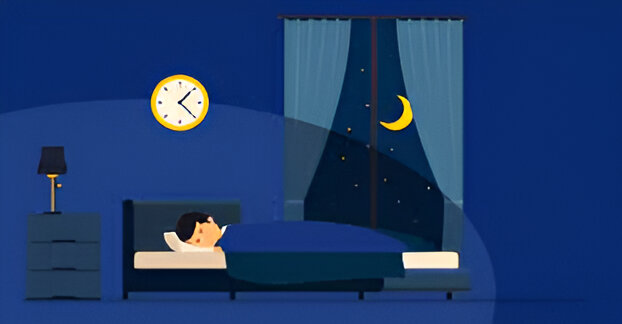Sleep hygiene refers to a set of practices and habits that help you sleep well consistently. Good sleep hygiene can significantly enhance the quality and duration of your sleep. Here are some key principles of sleep hygiene:
Consistent Sleep Schedule
Go to bed and wake up at the same time every day, even on weekends. This routine helps regulate your body’s internal clock, or circadian rhythm. By maintaining a consistent schedule, you support your body’s natural rhythm, making it easier to fall asleep and wake up refreshed.
Keeping a regular sleep schedule reduces the risk of sleep disorders like insomnia and promotes overall sleep quality. While sleeping in on weekends may be tempting, doing so can disrupt your rhythm, so consistency is key.
Create a Restful Environment
A peaceful bedroom environment is essential for good sleep hygiene. Ensure your space is quiet, dark, and cool:
- Quiet: Use earplugs or a white noise machine to block out disturbances.
- Dark: Block external light with blackout curtains or an eye mask.
- Cool: Keep your room at a comfortable, cool temperature.
These adjustments will help create a sleep-friendly space, allowing you to fall asleep more easily and stay asleep longer.
Comfortable Bedding
Investing in a comfortable mattress and supportive pillows is fundamental for restful sleep. Your mattress should offer the right blend of support and comfort, while your pillow should support proper spinal alignment.
Choose high-quality bedding made from breathable fabrics like cotton or linen. Comfortable, supportive bedding can significantly improve your sleep quality and overall well-being.
Limit Exposure to Light
Limit your exposure to bright light in the evenings and increase it during the day:
- Evening: Avoid screens and bright lights close to bedtime. Blue light from electronics can interfere with melatonin production, making it harder to fall asleep.
- Daytime: Spend time in natural light, especially in the morning, to strengthen your internal clock.
Balancing light exposure supports healthy circadian rhythms, helping you sleep better at night and feel more energized during the day.
Limit Stimulants and Alcohol
Avoid caffeine and nicotine close to bedtime, as they can keep you awake. While alcohol might initially make you feel sleepy, it can disrupt your sleep later in the night. By limiting stimulants and alcohol, you encourage uninterrupted and restorative sleep.
Avoid Heavy Meals Before Bed
Eating large or spicy meals close to bedtime can cause discomfort and indigestion, disrupting sleep. Aim to finish eating at least two to three hours before bed. If you need a snack, choose something light, like fruit or yogurt, to avoid digestive discomfort.
Exercise Regularly
Regular exercise can help you fall asleep faster and enjoy deeper sleep, but avoid vigorous exercise close to bedtime. Physical activity helps regulate your body’s internal clock, promoting better sleep patterns and overall sleep quality.
Relax Before Bed
Establish a relaxing pre-sleep routine, such as reading, taking a warm bath, or practicing meditation. Engaging in calming activities signals to your body that it’s time to wind down, making it easier to transition to sleep.
Limit Naps
While short naps can be refreshing, long or irregular napping can interfere with nighttime sleep. Aim for a 20-30 minute nap earlier in the afternoon if needed, and avoid extended naps late in the day to keep your nighttime sleep on track.
Use Your Bedroom for Sleep and Intimacy Only
To strengthen the association between your bedroom and sleep, avoid using it for activities like work or watching TV. Keeping the bedroom a restful space promotes better sleep hygiene, making it easier to fall asleep and enjoy quality rest.
Following these sleep hygiene tips will help improve your sleep quality. If you continue to experience sleep issues, such as frequent awakenings or feeling unrefreshed, you may have an underlying condition like sleep apnea. Consider scheduling an appointment with us at Sleep Solutions for further guidance.Westborough so we can help you get started on your journey to better sleep and better health.

